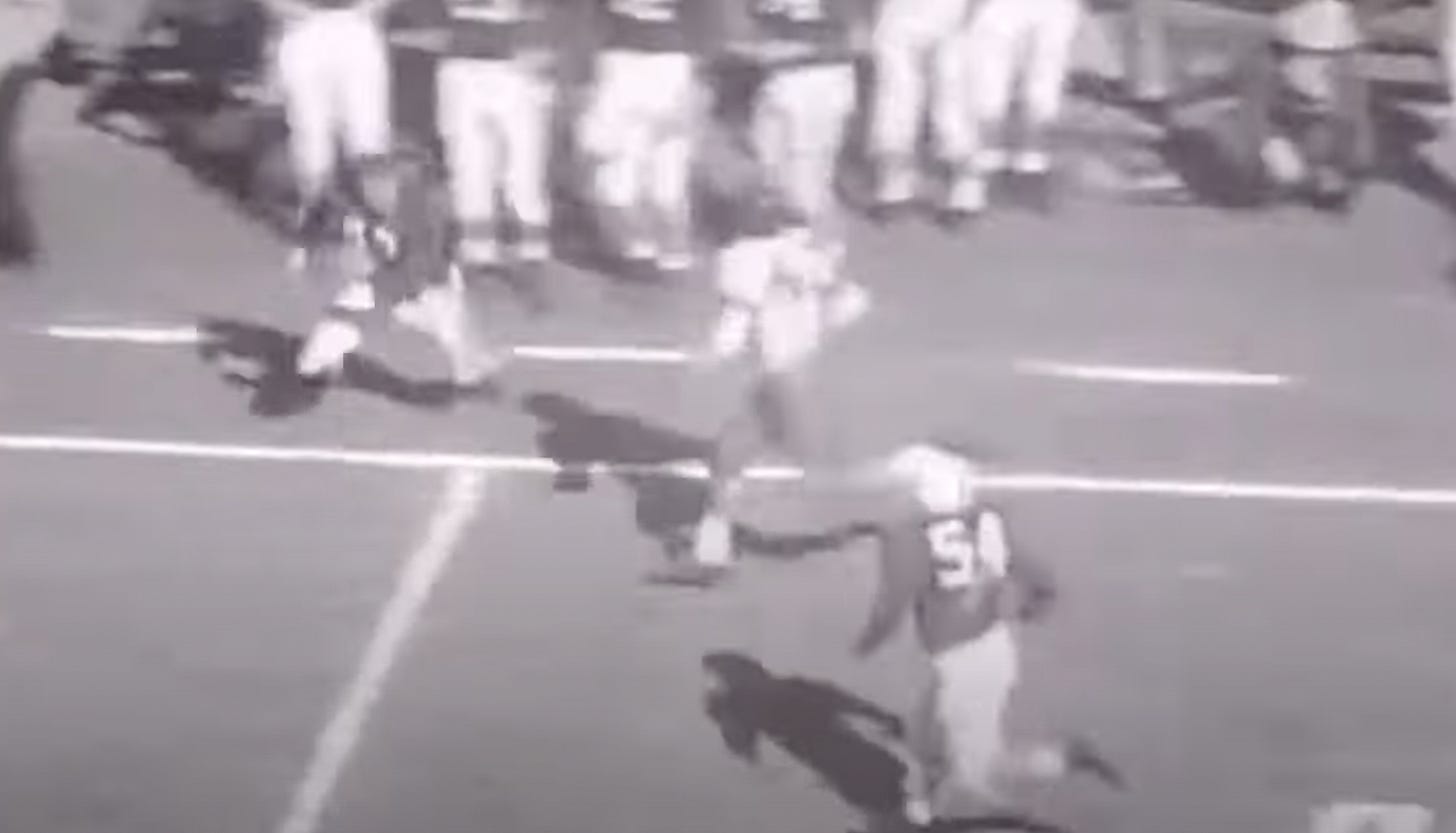Today's Tidbit... Referees Awarding Points
Today, when the offense commits a foul while behind its goal line, the defense earns a safety if the enforcement of the penalty would leave the ball on or behind the goal line. That approach became part of football's 1900 rules after a controversy arose in a Philadelphia-area high school game in 1899.
Committing a penalty behind the goal line is one of several situations today in which officials effectively award points to one team or the other, but there was another circumstance in the past that an official’s call resulted in awarding points.
Let's cover the historical situation first, which popped up as a reader, Chris Haack, investigated Michigan high school football in the 1920s. He noted that offenses were automatically awarded the extra point when defenses committed a penalty on the goal after touchdown attempt. Conversely, a penalty on the offense meant they lost their chance to score. Christopher wondered if the process was a Michigan thing or a widespread practice. Since that process was an NCAA rule and everyone followed the NCAA rules then, it applied to every level of football.
Although kicking the goal after a touchdown counted for more points than a touchdown early on, the relationship reversed over the years. Many wanted to reduce the impact of teams having a good kicker or poor kicker, so they pushed to eliminate extra points entirely. That never happened, but the pressure led to changes in the extra point process.
Before 1922, the goal after touchdown was a free kick, though there was the option to try a puntout. Either way, the officials enforced fouls committed during a try through the standard yardage or possession penalties. Starting in 1922, however, teams had the option to run, pass, or kick the ball to attempt to score, which provided some aid to teams with ineffective kickers. A penalty on the defense during a try led to the offense receiving the point, while a penalty on the offense ended their chance at scoring. Foul calls were suddenly more consequential.
Football used that rule until 1931, when they decided the rule made officials' calls too consequential, so they reverted to the old practice of enforcing penalties as they would on a standard scrimmage play.
Today, NFL and NCAA football officials can award points in two other circumstances. One comes when the defensive team repeatedly commits fouls in an attempt to delay the game and prevent the offense from executing a potential scoring play. The Washington Commanders were warned about this situation in the 2025 NFC Championship game when they committed multiple penalties in the 4th quarter to prevent the Philadelphia Eagles from executing a play. The NCAA has a comparable rule allowing the referee to award points. They can also forfeit games if a team refuses to start or continue playing.
The other situation in which NCAA officials can award points occurs with "Unfair Acts." Situations can arise in games that the rules do not explicitly cover, so the referee has the power to make any ruling considered equitable, including awarding points. For example, on multiple occasions in football's past, players who were running free for a touchdown were tackled by substitute players coming off the bench or by fans out of the stands.

The Unfair Acts rule allows the referee to decide that the tackled player would have scored a touchdown if not for the unfair act, and therefore can award a touchdown as a penalty. (Another Tidbit concerning instances of Unfair Acts is coming soon.)
Chris also wanted to know how they treated the points awarded by penalty in the game statistics of the 1920s. Was one player or another credited with the point, or was it a team point? The answer to that question is, "Who knows?" Football did not consistently track statistics or have rules for the same in the 1920s. NFL statistics started in 1932, and major colleges tracked stats through a third party beginning in the late 1930s.
The NCAA bought that company in 1959 and assumed the company's earlier stats.
So, that's that. Referees can award points in several situations today, so be sure not to cross your local official, or they might award points to your opponent, and there is nothing you can do about it.
Click Support Football Archaeology for options to support this site beyond a free subscription.





If you're looking for more instances of the unfair act rule awarding points, Wake Forest quarterback Larry Russell entered the field of play to stop a tackle during the 1971 NC State-Wake Forest game. Trailing 15-14 with time running out, Wake Forest sent out kicker Chuck Ramsey to attempt a 51-yard field goal in a driving rain. The kick fell short, allowing Bill Miller to catch the ball and begin sprinting down the field for what was believed to be a sure touchdown. Suddenly, Wake Forest’s quarterback, Larry Russell, tackled Miller from out of nowhere. The play would have saved the Deacon's comeback hopes, except for one problem: Russell had started the play on the bench and tackled illegally. Eventually, Miller was awarded a 69-yard touchdown, and Wake went on to lost 21-14.
I love it that the NFL calls it a "palpably unfair act". A great use of the word "palpably".